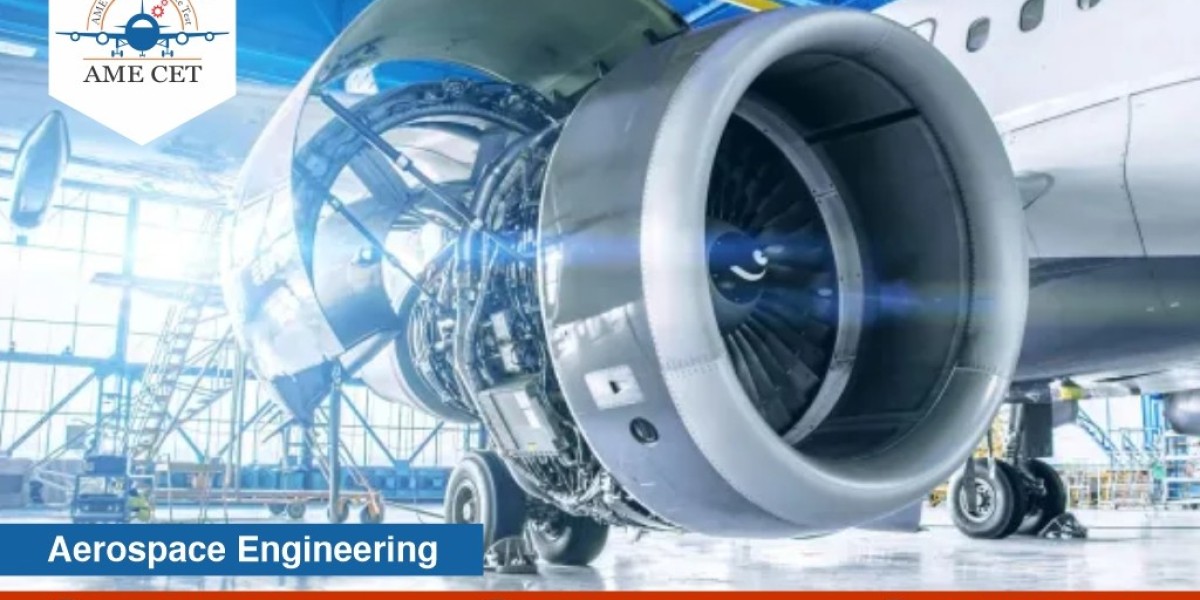Aerospace Engineering Course Details
B Tech Aerospace is the primary field of engineering concerned with the design, development, testing, and maintenance of aircraft, spacecraft, and related systems and equipment. The field has traditionally focused on problems related to atmospheric and space flight, with two major and overlapping branches:
- Aeronautical Engineering
- Astronautical Engineering
Where Aeronautical engineering includes the study of aircrafts and its components and astronautical engineering specifically includes the study of spacecraft and the technologies related to it. B.Tech Aerospace engineering impart knowledge of the conceptuals that include the core areas of the discipline and also introduce students to advanced applications and their learnings. Aerospace Engineering Degree holders are later equipped to work in the Aerospace Engineering Industry, in areas like propulsion systems, aerodynamic design, structural systems, etc.
An aerospace engineer skill set is broad along with that they have knowledge about mechanical engineering as the aerospace engineering program covers a large part of mechanical engineering, and thus they can make their contributions in many diverse sectors.
B.Tech Aerospace Engineering is a 4 years degree program.
Aerospace Engineering Course Detail and Duration
Aerospace engineering course duration
B.Tech Aerospace Engineering is a 4 years degree program that involves 8 semesters. This course includes the conceptuals of spacecraft mechanics. In the following four year program one should grab theoretical and practical knowledge of aircraft, spacecraft and other flying machines in the campus. They had a big responsibility of design, manufacturing, testing and maintenance of the flying machine. In the total semester candidate prepare yourself accordingly to being a professional aerospace engineer. No doubt it is a tough program and numerous skills needed.
Aerospace Engineering Course Detail
This course is considered to be the toughest branch of engineering. During the academic session candidates grab the knowledge about the spacecraft, and aircraft. However, if studied with dedication and focus, the branch gives the best result to the students in terms of their career. During the academic session candidates grab the knowledge about the spacecraft, and aircraft. B.Tech Aerospace Engineering Course is approved through AICTE (All India Council of Technical Education). Following courses will be covered during the academic session:-
- Aerodynamics
- Flight Mechanics
- Aerospace Propulsion
- Incompressible Fluid Mechanics
- Aerospace Structural Mechanics
- Introduction to Aerospace Engineering
- Aircraft Design
- Spaceflight Mechanics
- Aircraft Propulsion
- Thermodynamics and Propulsion
- Mathematics and Engineering Mathematics
- Structure and Materials
- Solid Mechanics
- Design (engineering,aircraft, aerospace vehicles)
- Etc.
Aerospace Engineering Eligibility Criteria
An Aspiring candidate must fulfill the eligibility criteria for pursuing this course.
The eligibility criteria for B.Tech Aerospace Engineering can be found below:-
- The Minimum Eligibility Criteria for pursuing this Course must be passed or appearing in class 12th with Physics, Chemistry, and Mathematics(PCM) or Physics, Chemistry and Biology (PCB).
- A candidate should be appearing or passed out 3 years engineering diploma in any stream.
- The candidate must have attained an overall aggregate of 45% marks (5% relaxation to the reserved categories (SC/ST) in some colleges).
- To get admission to the top aerospace engineering colleges of India, one could go for AME CET exam.
Aerospace Engineering Admission Process
The candidates who are interested to take admission in the course of Aerospace Engineering from one of the topmost institutes should know about the complete admission procedure of the same.
To take admission, the aspirants have to follow a certain process as decided by the authority. However, to take admission in one of the most renowned institutes, the candidates should take the AME CET. Not only qualifying this test offers admission to the top institutes in PAN India, but also a scholarship depending on one’s rank.
- Fill the application form of AME CET available on amecet.in.
- After qualifying the examination, one can take admission to the topmost institutes in PAN India.
B Tech / BE Aerospace Engineering Subjects
The B.Tech / B.E. Aerospace Engineering program is an extensive course that spans 8 semesters, blending practical training with academic learning. It's designed to provide students with a comprehensive understanding of aerospace engineering, covering both aeronautics and astronautics. Like its aeronautical engineering counterpart, this course includes a semester dedicated to practical training in a live environment, while the other semesters focus on academic sessions. Each semester consists of around 6-7 subjects that students need to pass to earn their B.Tech Degree.
The curriculum for this course is meticulously crafted to ensure that graduates are well-prepared to tackle challenges in the design, analysis, and manufacturing of aircraft, spacecraft, and their components. Here’s an outline of the subjects you can expect to study:
Semester 1:
- Engineering Mathematics I
- Engineering Physics
- Engineering Chemistry
- Engineering Graphics/Drawing
- Basic Mechanical Engineering
- Environmental Studies
- English/Communication Skills
- Physics Lab
- Chemistry Lab
Semester 2:
- Engineering Mathematics II
- Basic Electrical & Electronics Engineering
- Engineering Mechanics
- Computer Programming
- Workshop Practice
- Electrical & Electronics Lab
Semester 3:
- Engineering Mathematics III
- Thermodynamics: Principles of thermodynamics in aerospace applications.
- Mechanics of Solids
- Aerodynamics I: Fundamental concepts in aerodynamics.
- Manufacturing Technology: Overview of manufacturing processes and technologies in aerospace.
- Computer-Aided Design (CAD) Lab
- Mechanics of Solids Lab
Semester 4:
- Aerodynamics II
- Aircraft Systems and Instruments
- Propulsion I: Introduction to aerospace propulsion systems.
- Flight Dynamics I: Basics of how aircraft maintain balance in the air.
- Aerospace Structures I: Study of the materials and design of aerospace structures.
- Propulsion Lab
- Aerodynamics Lab
Semester 5:
- Control Engineering: Principles of control systems in aerospace engineering.
- Aerospace Structures II
- Propulsion II
- Flight Dynamics II
- Aircraft Design I: Fundamentals of aircraft design.
- Control Engineering Lab
- Aircraft Design Lab
Semester 6:
- Avionics: Study of electronic systems used in aircraft, satellites, and spacecraft.
- Wind Tunnel Techniques
- Computational Fluid Dynamics (CFD)
- Aircraft Design II
- Aircraft Maintenance and Repair
- Avionics Lab
- Wind Tunnel Lab
Semester 7:
- Helicopter Dynamics
- Spaceflight Mechanics: Principles governing motion and control of spacecraft.
- Environmental Control Systems
- Aircraft Navigation and Instrument Systems
- Aerospace Propulsion
- Project Work/Internship
Semester 8:
- Rockets and Missiles: Study of rocket and missile technology.
- Air Traffic Control and Planning
- Computational Structural Analysis
- Elective: Choices vary by university but may include Advanced Aerodynamics, Modern Control Theory, etc.
- Final Project/Thesis
Aerospace Engineering Colleges and Fees in India
Aerospace Engineering Colleges
There are various b.tech aerospace engineering colleges in India. The top colleges provide great placements and have well- experience faculties and latest infrastructure etc. Latest infrastructure means numerous facilities are available in campus like well managed library, well equipped laboratories, well modified classrooms, proper sitting area where group discussion goes on etc.
This is toughest branch of engineering so b tech aerospace colleges provide a well equipped workshop with proper needed tools. This is a 4 years degree program in which a candidate gets theoretical and practical knowledge about aircraft, spacecraft and other flying machines. In such engineering fields practical classes are also more important because here candidates work in a campus workshop. And working in that type of environment is really helpful for the future of the candidate.
Aerospace Engineering Fees
The fees of the course of Aerospace Engineering vary from institute to institute. It also depends on the facilities provided by the institutes. Some common factors behind the fee variation like locality of institute, facilities provided, well qualified faculties, laboratories with proper needed tools, and placement record, etc. Furthermore, the Fees is paid semester-wise. If the candidate is not able to pay the fee due to weak financial background, then they can apply for the loan also.
The fees of this course ranges from INR 50,000/- to 1 lakh per semester. The course fee in India is low as compared to the fee for the NRI students. The whole course fee is approx 4 lakhs to 8 lakhs and it totally depends on the institute which a candidate chooses during their counseling. The total fee amount for the NRI candidates ranges from US $2550 - US $3000 per semester.
In the above fees hostel fees are not included. If one wants the hostel facility then they pay for it. The hostel fees also vary from institute to institute and the facilities provided and it becomes approx. 40,000/- to 50,000/- per year.
Aerospace Engineering Career Opportunities
There is an enormous amount of career opportunities in the field of Aerospace Engineering. After completing this course candidates are able to get amazing jobs along with a healthy package. Furthermore, these graduates can work in the following industries:-
- Airlines
- Maintenance, Repair, and Overhauls (MRO) Industries
- Aircraft Manufacturing Companies
- Civil Defence Forces
- Research Organizations
Also, one can work in the following organizations:-
- Hindustan Aeronautics Limited (HAL)
- Defense Research and Development Organization (DRDO)
- Indian Space Research Organization (ISRO)
- Civil Aviation Department
- National Aeronautics and Space Administration (NASA)
- Boeing
- Airbus
- Airlines
- National Aerospace Laboratories (NAL)
- Maintenance, Repair, and Overhaul (MRO) Organizations
Aerospace Engineering Job Profile And Job Opportunities
After doing this course candidates can work as Aircraft production manager, Aerospace design checker, Mechanical design checker, Assistant technical officer or Thermal design engineer, etc. In this field, one will be able to get the opportunity of various job profiles.
- Aircraft Engineer
- Thermal Design Engineers
- Aircraft Production Manager
- Aircraft Structural Engineer
- CAD Technician
- Aerospace Design Checker
- Academic researcher
- Aerospace engineer
- Design engineer
- Higher education lecturer
- Manufacturing systems engineer
- Materials engineer
- Mechanical engineer
Candidate also use their degree in different field like:-
- Automotive engineer
- Control and instrumentation engineer
- Patent attorney
- Product designer
- Production manager
- Quality manager
- Sales executive
- Technical sales engineer
Areas where Aerospace Engineers can do work
- Manufacturers of aircraft and components.
- Defense organizations.
- Airline operators.
- Research and development organisations.
- The armed forces.
- Engineering consultancies.
- Government departments, agencies and organisations
- Space agencies.
- Universities.
Salary of an Aerospace Engineer
An Aerospace Engineer is believed to earn a healthy package. This field holds the potential of an amazing salary package. They are highly paid professionals However, the salary package depends on the firm, the skills, and the knowledge the candidate holds and the work experience a candidate has. The average salary of an Aerospace Engineer is approx. INR 8 Lakh per annum as per the report of Payscale. And the salary increases accordingly when they gain experience in their field.
| Job Title | Experience Required | Salary in India | International Salary |
|---|---|---|---|
| Entry-Level Engineer | 0-2 years | ₹6 L - ₹12 L | $60,000 - $75,000 |
| Mid-Level Engineer | 3-7 years | ₹12 L - ₹24 L | $76,000 - $100,000 |
| Senior Engineer | 8-15 years | ₹24 L - ₹40 L | $101,000 - $130,000 |
| Principal Engineer | 15+ years | ₹30 L - ₹50 L | $131,000 - $160,000 |
| Engineering Manager | 10+ years | ₹50 L - ₹75 L | $120,000 - $170,000 |
| Director of Engineering | 15+ years | ₹75 L - ₹1 Cr+ | $170,000 - $220,000+ |
| Vice President of Engineering | 20+ years | ₹1 Cr+ | $220,000 - $300,000+ |
After B.Tech Aerospace Engineering
After the candidate completes the course of B.Tech in Aerospace Engineering, he/ she will have infinite opportunities in the future. Not only B.Tech Aerospace Engineering scope includes further education but also amazing job opportunities. These graduate can join either Government or Private companies with a good salary package.
If a candidate continues their further education then they can join M.Tech in Aerospace Engineering in the branch of their interest and they also do Phd in Aerospace Engineering.This type of program helps a candidate to gain the highest salary package and they easily earn job opportunities in abroad.
One holds the opportunities to join the industries like Air Force, Airlines, Corporate Research Companies, Helicopter Companies, Defence Ministry, Aviation Companies, NASA, Flying clubs, Aeronautical Laboratories, Aircraft manufacturers, government-owned air services, and many others.
After completing a B.Tech in Aerospace Engineering, there are several paths you can take for further education or specialization. Here’s a list of courses and programs often pursued by graduates:
- M.Tech in Aerospace Engineering
- M.Tech in Aeronautical Engineering
- M.S. in Aerospace Engineering (Abroad)
- MBA
- Postgraduate Diploma in Aviation Management
- M.Tech in Avionics
- Ph.D. in Aerospace Engineering
- Masters in Space Engineering
- M.Tech in Satellite Technology
- Professional Certification Courses
- M.Tech in Unmanned Aerial Vehicle (UAV) Design



